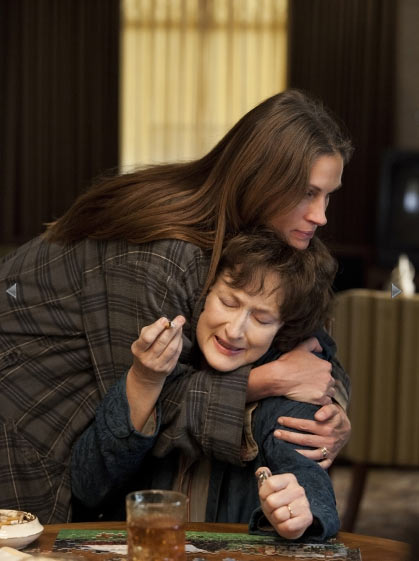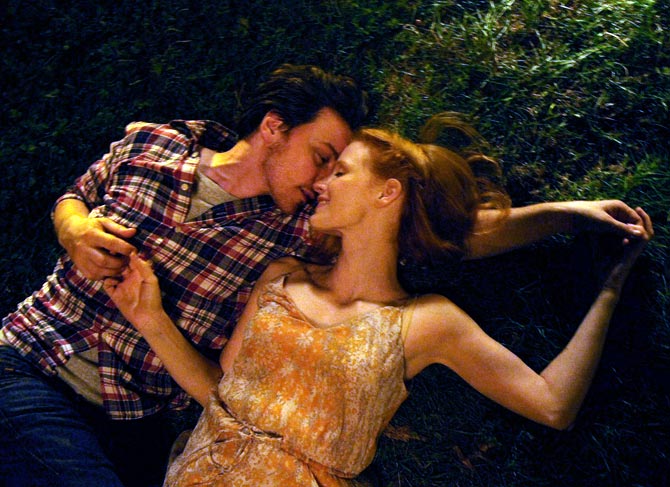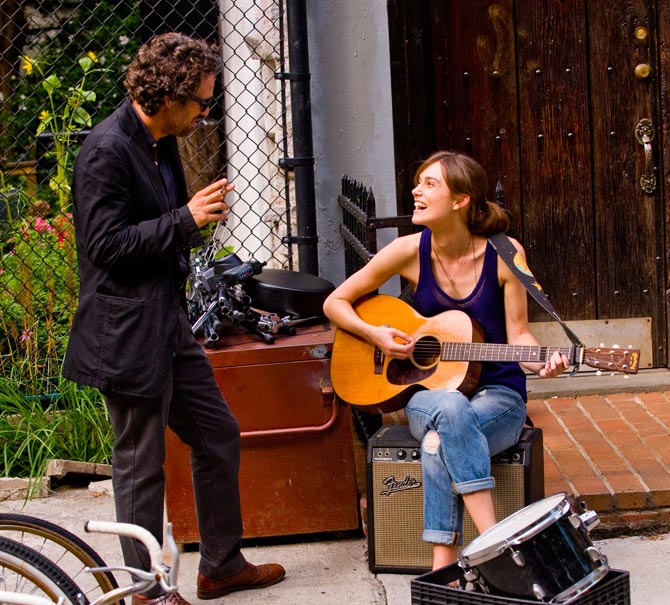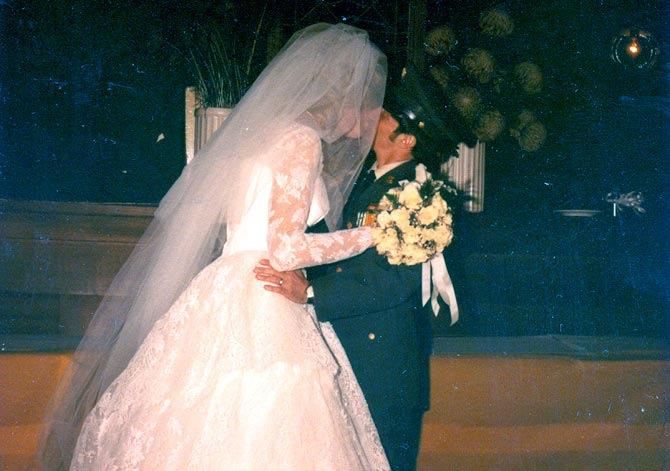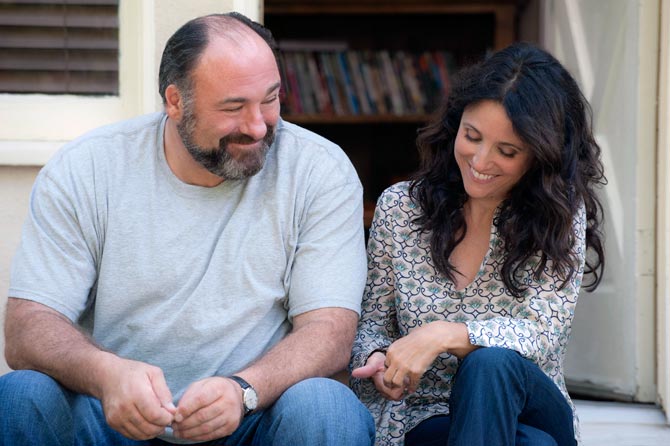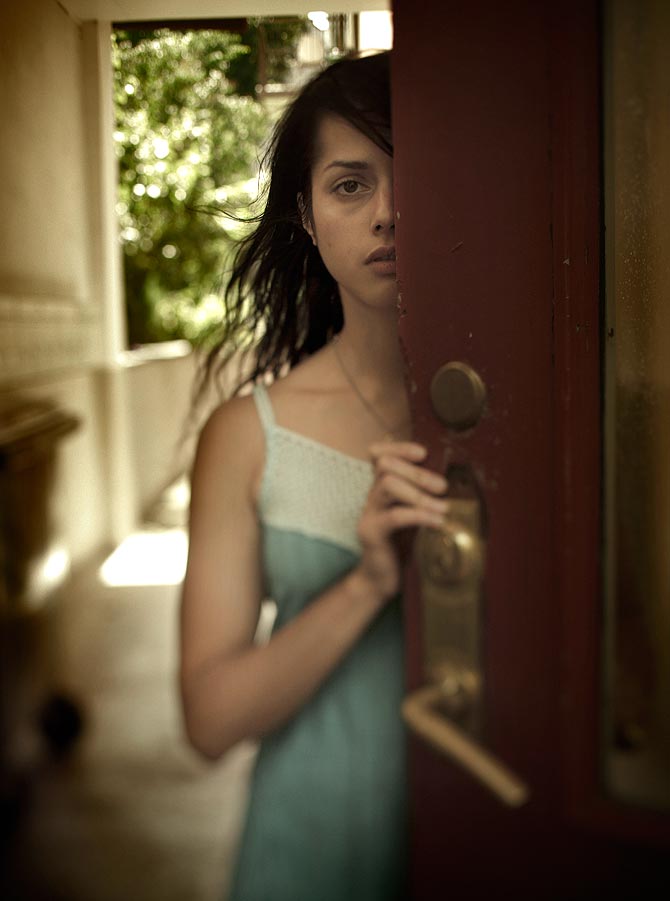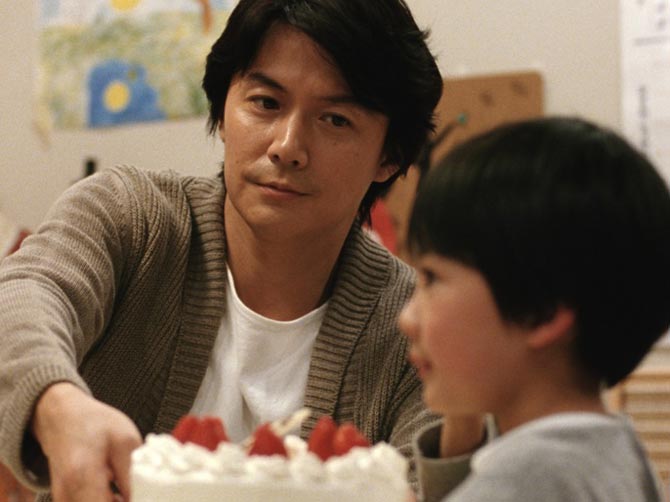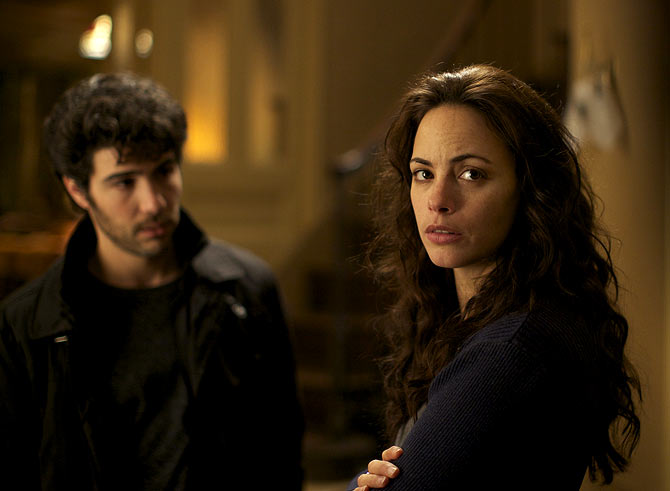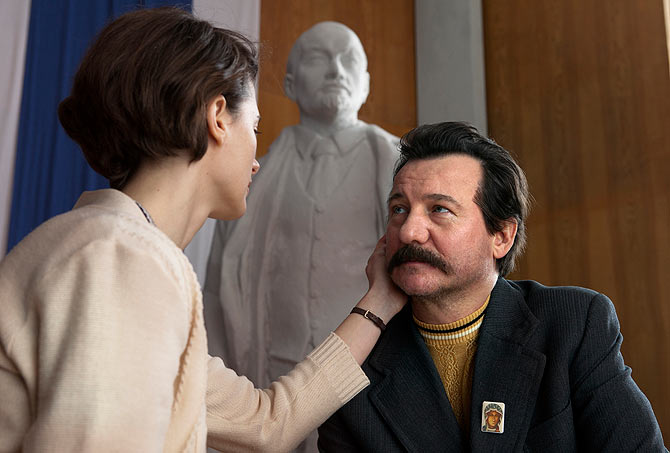 | « Back to article | Print this article |
Layered with heartaches
This year’s Toronto International Film Festival featured nearly 300 films -- many of them world premieres, several films that carry weight for the upcoming awards season.
I saw some of the bigger films last month at the Telluride Film Festival -- films like 12 Years A Slave, Gravity, Prisoners. So TIFF gave me the opportunity to discover other major films, some remarkable smaller art-house and foreign films.
Here then are my top 10 films from TIFF 2013 -- in no particular order.
August, Osage County
Tracy Lett’s Pulitzer Prize-winning hit play gets cinematic treatment from first time filmmaker John Wells (he has had a long television career directing and producing shows) with a dream star cast -- Meryl Streep, Julia Roberts, Juliette Lewis, Ewan McGregor, Sam Shepard and more.
August, Osage County is a devastatingly powerful film about a highly dysfunctional family, falling apart from its dark secrets.
At times the film feels a bit theatrical, but under Wells’s direction we have a giant treasure box of acting.
Streep and Roberts play mother and daughter, but they might just be the worst of enemies. This may sound like a cliche, but Streep has never been better and Roberts certainly gives what could be her most mature -- perhaps career best -- performance. The film is stamped with Oscar nominations.
The Weinstein Company will release August, Osage County in the US on December 25. The post-TIFF news is that the filmmaker and the Weinsteins are in disagreement about how to end the film.
No matter what they decide, the audience will be rewarded with this very strong film.
The Disappearance of Eleanor Rigby: Her and His
One the real finds at this year’s TIFF is this three hour-long, two-part film, directed by first-time filmmaker Ned Benson.
Based on Benson’s script, Eleanor Rigby tells a deeply sad story about the failure of a young marriage, partially caused by a tragedy.
The two parts look at the story from Her and His point of view. Each part complements the other.
As an experiment, TIFF held some screenings with His segment first while the others started with the Her segment.
Perhaps the audience experiences a different film, with altered emotions, depending on whether they watch the same story unfold from His point of view before Her perspective or the other way round.
Jessica Chastain and James McAvoy play the young couple. Their pain is almost unbearable to watch and yet we are glued to the screen for all three hours.
Their very impressive performances are aided by a hugely talented supporting cast -- Isabelle Huppert, William Hurt, Viola Davis and Ciaran Hinds.
Eleanor Rigby is a small masterpiece, this year’s Blue Valentine.
Can a Song Save Your Life
In 2006, John Carney made a small Irish film -- Once, about the love and music between two struggling musicians in Dublin.
The heartwarming, romantic film became a cult hit, won an Oscar for its song Falling Slowly and made stars out of its leads actors and singers, Glen Hansard and Marketa Inglova.
The film cost $180,000, and earned over $20 million.
Now armed with a much bigger budget, Carney has made a film with a bigger star cast led by Keira Knightley, Mark Ruffalo, Catherine Keener and singer Adam Levine in his first screen role.
Can a Song Save Your Life is not Once -- that magic can only happen once in a filmmaker’s lifetime. But the new film is still romantic, charming, often sad, layered with heartaches and, most important, it is rich with music.
The Dog
In 1975, Sidney Lumet made perhaps the most successful film in his long career, Dog Day Afternoon, based on a real incident of an attempted Brooklyn bank robbery, but with a twist.
Al Pacino gave one of his career best performances of an ordinary man -- John Wojtowicz who walked into a bank to steal money for his boyfriend’s sex change operation.
Now filmmakers Allison Berg and Frank Keraudren have made a fascinating documentary -- a work of 10 years, about the real story behind Dog Day Afternoon.
They tracked down Wojtowicz through his mother -- both very charming, talkative and eccentric characters. We also meet Wojtowicz’s ex-wife and his lover, who wanted to undergo a sex change.
It is a bizarre story about the extent people go through for love.
To the filmmakers’ credit they never judge their protagonist, but they let the audience experience the lives of people living on the margins of our society.
The Dog is a delightful, important companion piece to Dog Day Afternoon -- one of the most remarkable films made about crime in New York City and its crazy energy.
Enough Said
Nicole Holofcener makes light comedies often about conflicted middle-aged women, sometimes divorced and looking for love.
She almost always casts the terrific Catherine Keener -- some may say the actress is the filmmaker’s alter ego. This time Holofcener had a casting coup of sorts -- now laced with tragedy.
Her leads are Julia Louis-Dreyfus (remarkably informing us that there is more to her than just Elaine Benes of Seinfeld) and an extremely romantic and likable James Gandolfini, in his final role.
The mismatched couple first meets at a party, awkwardly start to date, fall in love and then separate because of a set of coincidences and circumstances. In an important supporting role, Keener plays Gandolfini’s ex-wife.
Holofcener loves her characters and her actors and she gives them enough space to be themselves, show their eccentricities and also grow.
Enough Said is a wonderful film. It is Gandolfini’s swansong, and how beautifully he plays in it. Forget the ruthless mobster Tony Soprano. Here Gandolfini is likes a cuddly teddy bear.
Each time he smiles, his eyes light up. He is so alive in Enough Said that it is hard to believe he is no longer with us.
Half of a Yellow Sun
This film festival season, everyone seems to be talking about the Nigerian-British actor Chiwetel Ejiofor’s performance in Steve McQueen’s stunning film 12 Years a Slave.
But at TIFF we saw one more film with Ejiofor -- Half of a Yellow Sun, a Nigerian epic and the most expensive film made in that country.
Directed by playwright Biyi Bandele and based on a bestseller by Chimamanda Ngozi Adichie, the film follows twin sisters (lovely actresses Thandie Newton and Anika Noni Rose) as they learn to survive in post-independence Nigeria, riddled with coups and the harrowing Biafra civil war that nearly destroyed the oil-rich West African country.
Half of a Yellow Sun is a fascinating and thoroughly engaging film about a very important story that the world seems to have forgotten.
It is an important document about the human spirit and our natural instincts for survival, families with troubles and the importance of forgiveness.
I Am Yours
This bold Norwegian film looks at the lives of Norway’s small Pakistani immigrant community through the point of view of Mina (a terrific Amrita Acharia), a struggling actress and a divorced single mother with a young son.
Mina’s life involves taking care of her son, sometimes picking him at her ex-husband’s place, who now lives with another woman and then visiting her conservative Pakistani parents who are ashamed about their daughter’s life choices.
In between all of this, Mina searches for love, but balancing her love interests and the demands of raising a child by herself comes with its own challenges.
Norway-based director Iram Haq has created a tough immigrant drama setting it in what appears to be a very alien society.
That there is a Pakistani expat community in Norway is not a surprise. But the lives of some immigrants can be very difficult and I Am Yours is a harsh reminder of that reality.
Like Father, Like Son
Hirokazu Kore-eda (After Life, Nobody Knows and Still Walking) is a leading contemporary Japanese filmmaker who often works on heart-wrenching stories about children making sense of the complicated adult world around them.
Like Father, Like Son -- the jury award winner at this year’s Cannes festival -- is a solid follow-up to his earlier work.
Two young families (one working class and one educated, white collar) are informed by a hospital that their six-year-old sons were accidentally exchanged at birth.
The two sets of parents take time to digest this devastating news, accepting their harsh fate. They get to know each other, and the two boys.
The children -- completely unable to understand the enormity of the situation -- have to make their own adjustments.
Like Father, Like Son is not a happy, easy film, but it is so real and beautifully made that we start to accept the pain of the two families as our own.
There are no winners or villains in Kore-eda’s story and no solution is perfect.
The Past
There are also no winners and villains in Iranian filmmaker Asghar Farhadi’s latest drama, The Past.
Like his Oscar winner masterpiece, A Separation, Farhadi treats his story as a thriller, revealing little details as if he is slowly peeling layers of an onion.
An Iranian man returns to Paris after many years to finalise his divorce with his French wife (a wonderful Berenice Bejo, who won the best actress award at Cannes).
There, he encounters her French Arab boyfriend and re-unites with his ex-wife’s two young daughters from an earlier marriage.
The Past is a story about people who cannot wipe off their history and so are unable to move forward.
It is a story that seems too familiar to anyone who has been through a couple of relationships, a marriage or other emotional bonds.
Farhadi is not interested in providing answers to his characters or to his audience. He does not give them easy, smooth, lives and that is what makes his cinema so believable.
Walesa: Man of Hope
The Polish master Andrzej Wajda turned 87 this March and he has just given us a compelling biopic about Lech Walesa, the unemployed worker who unexpectedly led the struggle for Poland’s move to a free democracy and in the process won a Nobel Peace Prize.
Walesa: Man of Hope is a riveting film that often feels like cinema verite about an unlikely hero and his journey to lead his country.
The story is revealed to us as Walesa gives an interview to the Italian journalist Oriana Fallaci.
Much of Walesa’s strength rests on the mesmerising performance by the Polish actor Robert Wieckiewicz.
A charismatic actor, Wieckiewicz tackles his role showing the strengths, flaws and fears of a man who had to often make tough choices of continuing on the path of the struggle as his wife and children suffer hardships.
Walesa may be Wajda’s final film. It certainly is a jewel in the crown for the giant filmmaker.
